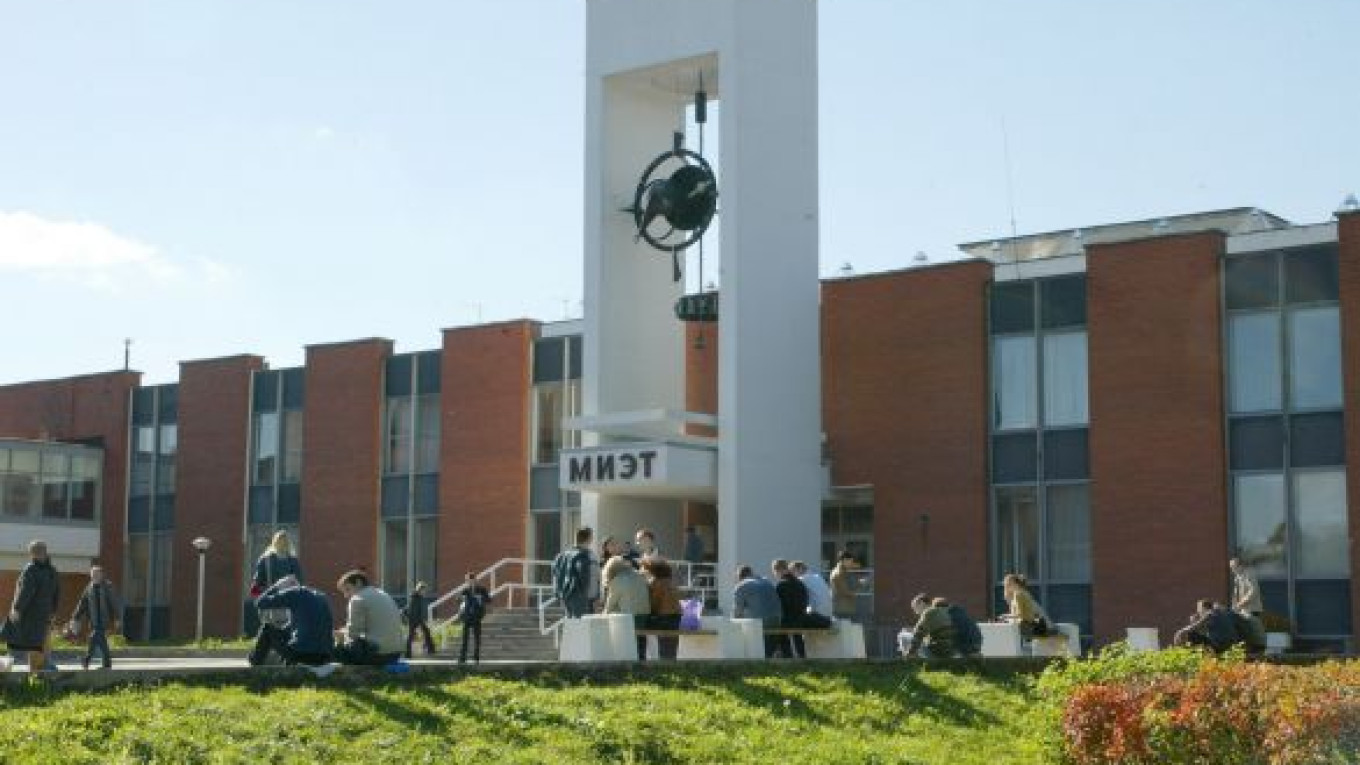In 10 days, President Dmitry Medvedev will indicate where the future Russian Silicon Valley will be created, and one of the early favorites is the area near the business school Skolkovo.
Among the possibilities for the Center for Research and Development, as it will be called, are Tomsk, Novosibirsk, St. Petersburg, Obninsk, Dubna and an area near the business school Skolkovo along Novorizhskoye Shosse and Leningradskoye Shosse, presidential aide Arkady Dvorkovich said yesterday.
Rusnano head Anatoly Chubais will be charged with developing the project, and the president will likely announce the details of the project when he meets with Chubais on March 22, Dvorkovich said.
The president will consider several criteria in making the choice: infrastructure development, size of the territory, proximity to educational centers and attractiveness for business, Dvorkovich told Vedomosti. That the land belongs to the federal government would simplify the process, but it is not a decisive criterion.
The development of a business plan and the issue of financing will be worked out by a managing company that the president has ordered to be created, Dvorkovich added.
The federal budget is ready to spend money on developing nonprofit projects and scientific infrastructure. The other facilities, including social facilities, will be built using co-financing. "Construction may start next year, but probably only in the second half," he said.
The list is very long, only Chukotka and Yakutia do not meet the criteria, one government official joked. Nearly every area named complies with the criteria stated.
A source close to the government said the discussions on obtaining land will be carried out with private landowners. Four projects were considered: Rublyovo-Arkhangelskoye (430 hectares on Novorizhskoye Shosse that are owned by Mikhail Shishkhanov and Sberbank); A 101 (13,000 hectares near Kaluzhskoye Shosse, owned by Vadim Moshkovich); Konstantinovo (more than 1,000 hectares near Kashirskoye Shosse, owned by Yevrasia); and the land near Skolkovo.
The project requires hundreds of hectares of land, and the center should be world-class, a source in a federal agency said. Both sources said the most likely candidate was the land near Skolkovo, the owners of which they declined to name.
The land near Skolkovo could cost $20 million to $25 million per hectare, according to an estimate by Ilya Terentyev, CEO of Zemer Group.
Konstantin Rykov, a member of the State Duma's Science Committee, told Infox.ru that the United Russia party had opened talks on the Silicon Valley project with Japanese construction company International Dome House, which makes cheap houses from Styrofoam. The company could build a "city of the future" in Russia.
A former Moscow region official said a similar center had been built in Dubna about two years ago. "Offices, factory space and conference centers were built on a huge plot of land, and about $1 billion was invested in it. It's not clear why they have to start a new project," he said. The land in Skolkovo belongs to a federal official, who has long lobbied for this project along with Vladimir Yevtushenkov's holding company Sistema.
Skolkovskoye Shosse is one of the shortest highways, and now it is one of the most elite areas of the Moscow region, said Yevgeny Ivanov, managing director of Zagorod. Deputy Prime Minister Igor Shuvalov and former Mayor Gavriil Popov both live in Skolkovo, a Moscow realtor said.
Members of the United Russia party and two officials in the presidential administration said there was a 90 percent chance that construction of the innovative city will be in the Moscow region, probably near Zelenograd: It's close to Sheremetyevo Airport, the new Moscow-St. Petersburg highway and the Moscow Institute of Electronic Technology.
Making Zelenograd a center for the Silicon Valley would be logical — the city was created as a center for innovative development, a source in Sistema said. The idea to build the center in Zelenograd, which has been lobbied by Yevtushenkov, was rejected, a Kremlin official said.
The Skolkovo option is advantageous from the location point of view, but there are no scientists there, an official taking part in the discussions said. Not only is the location important but so is who will lead the project. Chubais is charged with choosing a candidate, another source in the presidential administration said. "Otherwise it will be the Silicon Gulag."
A Message from The Moscow Times:
Dear readers,
We are facing unprecedented challenges. Russia's Prosecutor General's Office has designated The Moscow Times as an "undesirable" organization, criminalizing our work and putting our staff at risk of prosecution. This follows our earlier unjust labeling as a "foreign agent."
These actions are direct attempts to silence independent journalism in Russia. The authorities claim our work "discredits the decisions of the Russian leadership." We see things differently: we strive to provide accurate, unbiased reporting on Russia.
We, the journalists of The Moscow Times, refuse to be silenced. But to continue our work, we need your help.
Your support, no matter how small, makes a world of difference. If you can, please support us monthly starting from just $2. It's quick to set up, and every contribution makes a significant impact.
By supporting The Moscow Times, you're defending open, independent journalism in the face of repression. Thank you for standing with us.
Remind me later.


